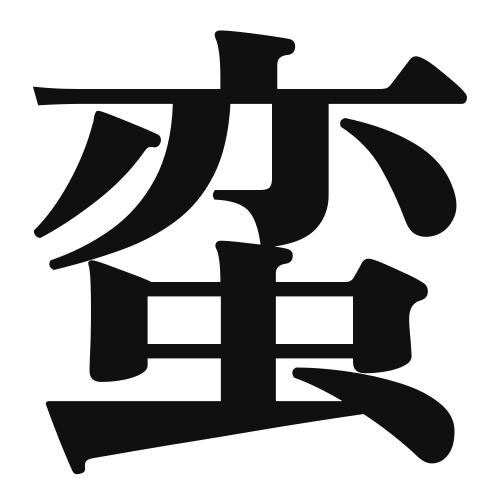1. Overview of Meaning
The kanji “蛮” (ban) generally means “barbaric” or “uncivilized.” It is often used to describe something that is rough, wild, or lacking refinement.
2. Formation and Radical
Formation of the Kanji: The kanji “蛮” is a phonetic-ideographic character (形声文字). It combines the radical for “insect” (虫) with a phonetic component that suggests its pronunciation.
Radical: The radical of “蛮” is 虫, which relates to insects and is often found in kanji associated with living creatures or nature.
3. Examples of Usage
Common Words and Phrases: Some common words that include “蛮” are “蛮族” (banzoku – barbarian tribe) and “蛮行” (bangō – barbaric acts).
Example Sentences in Daily Conversation:
- 彼は蛮な行動をすることが多いです。 (He often engages in barbaric behavior.)
- その映画は蛮族の物語です。 (That movie is a story about a barbarian tribe.)
4. Synonyms and Antonyms
Similar Kanji: A similar kanji is “野” (ya), which means “wild” or “field.” While both can imply a lack of civilization, “野” often refers to nature or the wilderness, whereas “蛮” emphasizes a lack of culture or refinement.
Opposite Kanji: An antonym is “文明” (bunmei), which means “civilization.” This term represents the opposite of barbarism, indicating a developed and cultured society.
5. Cultural and Historical Background
Relation to Japanese Culture: The concept of “蛮” has historical significance in Japan, often used in literature and discussions about cultural identity and the perception of outsiders.
Proverbs and Idioms: One common expression is “蛮勇” (banyū), which means “foolhardy bravery,” referring to reckless courage that lacks wisdom.
